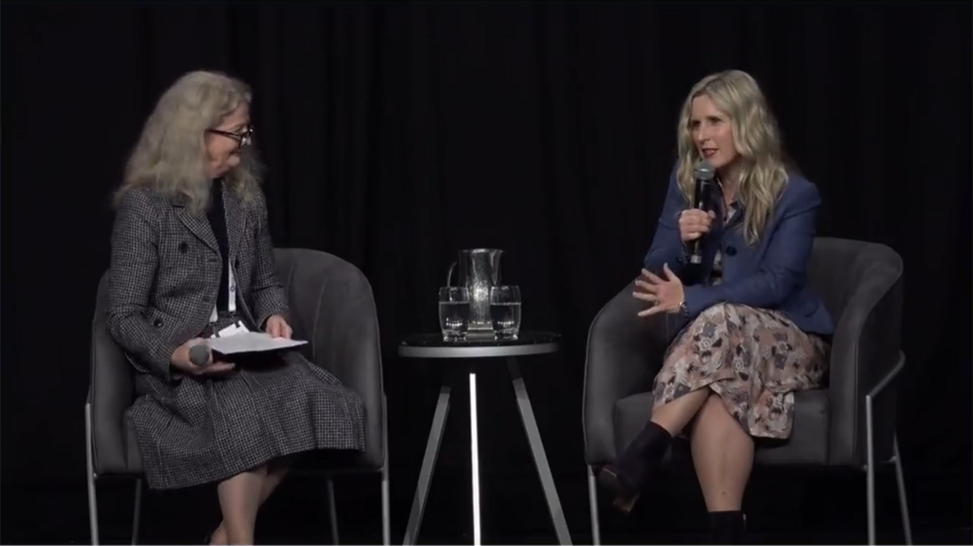Advisers not in private equity “missing a huge piece of the pie”
Private equity has been one of the most popular, and profitable, of the alternative asset classes in recent years. The collision of massive amounts of capital and more companies choosing to avoid the pressures faced by becoming listed has made an allocation within portfolios more important than ever.
The asset class is often the topic of heated conversation after hitting headlines for all the wrong reasons. Private equity is regularly involved in IPO and new listings on public markets as founders and investors seek to sell positions, but also in the purchase and break-up of others. Those who see the sector in a negative light may well be missing the point for what is an extremely broad and varied asset class.
Claire Smith, alternatives director at Schroders, was quick to point this out when addressing some of the leading financial advisers in the country at The Inside Network’s Alternatives Symposium in Melbourne last week. During her presentation she delved into the private equity sector, paying close attention to the most important drivers of interest and returns for the sector, being illiquidity, and diversification.
Investing in private equity has clear merits, she says, especially with the number of listed companies on stock exchanges in many parts of the world having dropped significantly over recent decades. Smith says, “conversely, private equity has grown substantially in scale and accessibility.” She believes now is a good time to be looking at opportunities in private equity. The benefits are manifold.
Schroders conducted a survey in 2021 to track the extent that investors agreed to invest in private assets. The top three reasons investors chose private assets in their portfolio allocation, were:
- 76% chose the class for its diversification benefits
- 62% to capture the illiquidity premium
- 58% generate high returns
Smith says, “if we compare listed markets, there are only 2,500 companies. Comparing that to the private equity market, there’s some 145,000 private companies. Just concentrating on the listed space means that you’re missing out on a huge piece of the pie.”
The second reason investors look at private equity is because of higher returns. Over the long term, private equity has historically outperformed listed markets, with a 20-year CAGR return of 10 per cent a year versus the S&P 500 Index’s total return of 7.6 per cent a year.
Smith says the best opportunity lies in the private equity small-mid cap segment (<$100 million): these companies trade at a structural discount to the bigger companies. At this end of the market, pricing multiples are better, and a lot of the characteristics are in the company’s favour.
Schroders seeks to offer investors all of the benefits and opportunities in this sub-sector of the market by combining investments in external and internal funds, holding secondaries (being shares in existing but more mature companies, that are sold by other PE investors) and making direct co-investments into the highest-quality, most attractive private-equity backed companies it can find.
Importantly, it isn’t all about focusing on the hyper-growth technology companies, which have faced significant pullback in listed markets (anyway), in 2022, but even on traditional industrial and other sectors of the economy that are growing quickly in niche areas. Ultimately, it is these niche areas that are central to leveraging the information asymmetry that attracts capital to the sector. looking for consistent returns and outperformance.
Also speaking at the Inside Network’s Alternatives symposium was Cameron Brownjohn from Federation Asset Management. Brownjohn and his team have taken a slightly different approach in PE by investing in businesses and assets that meet a social and economic need; that is, a commitment to investing for the purpose of ESG, not just as a screen.
Federation highlights the fact that private equity investments remain somewhat nascent in Australia, compared to the US and Europe at least, with the team’s experience trading for Macquarie and its singular focus flowing into a significant opportunity.
With this particular focus on Australia, Brownjohn says the key to private equity is growth. “There is a flood of money that is moving into this space. Smart, sophisticated capital is moving in, primarily because the returns are better. The contrast between Australia and Asia is lower-risk. Australia also is more skewed towards the bigger private equity firms such as KKR. Federation on the other hand, tends to do the opposite, and chase the space where there is less capital.”
Federation invests in growth in private equity with over $4 billion in opportunities since 2011. The biggest benefit from investing in private equity is the ability to access asset classes that you otherwise couldn’t. The traditional, illiquid approach to private equity, in many cases requiring decade-long lockups, isn’t suited to the mass market or retail client base, something Federation is seeking to change through itsunique fund structure.
It takes decades to understand the many risks in private markets, with the structuring of deals and protection mechanisms for investors a key to increasing the probability of success. Similarly, with a flood of new and inexperienced managers deal flow has become more important, with private market deals not easily accessible, but rather still relying on being ‘in the know.’
In this way, ESG considerations are not an overlay but actually an amplifier of returns in private markets. “We’re not doing it as a means to an end. We philosophically believe that if you invest in ESG a certain way, you’re more likely to protect your investors’ capital and you’re more likely to make a profit on your investors’ capital,” said Brownjohn.











